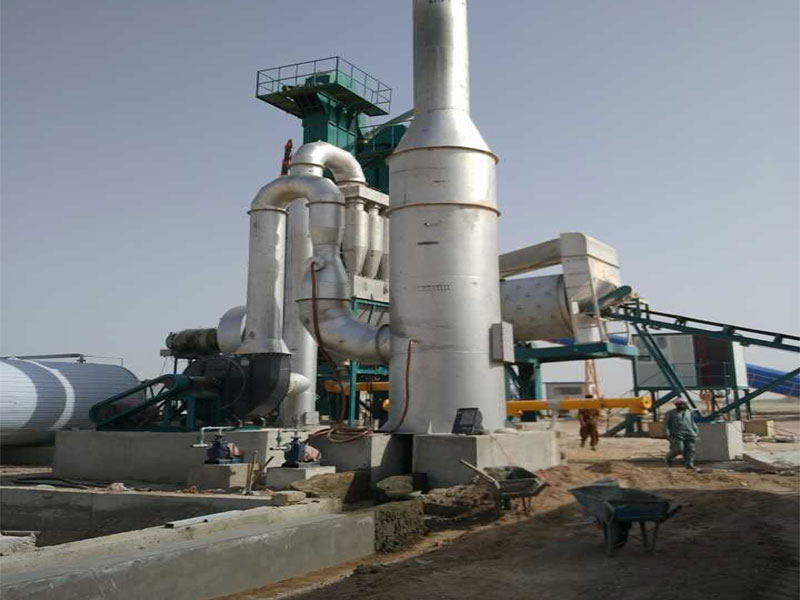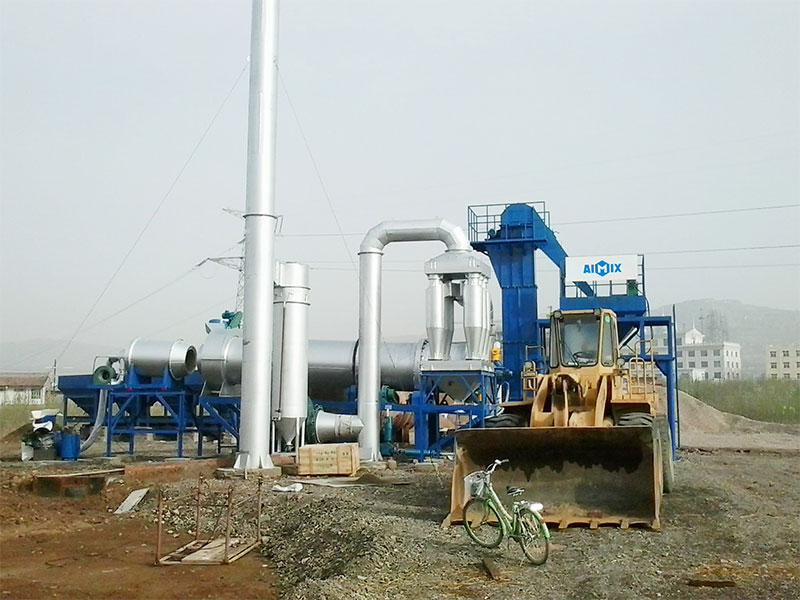Asphalt plants play a critical role in the construction industry, supplying the essential material for building and maintaining roads, highways, and other infrastructure projects. Among the various types of asphalt plants available, portable and stationary plants stand out as two distinct options, each with its unique features and advantages.
Mobility and Flexibility
One of the most significant distinctions between portable and stationary asphalt plants is mobility. Portable asphalt plants are designed to be easily transported from one location to another, offering unparalleled flexibility for construction projects in diverse settings. These plants can be rapidly deployed to remote or temporary job sites, eliminating the need for extensive infrastructure and reducing transportation costs.

In contrast, stationary asphalt plants are fixed installations that are permanently set up at a specific location. While stationary plants may offer higher production capacities and efficiency, they lack the mobility and versatility of their portable counterparts. Stationary plants are ideal for long-term projects or high-volume production requirements where mobility is not a primary consideration.
Installation and Setup
The installation and setup processes for portable and stationary asphalt plants differ significantly. Portable plants are designed for quick assembly and deployment, with modular components that can be easily transported and assembled on-site. Minimal site preparation is required for portable plants, making them ideal for rapid deployment in remote or challenging environments.
On the other hand, stationary asphalt plants require more extensive site preparation and construction. These plants with a good asphalt plant price are installed on permanent foundations and may involve complex infrastructure such as silos, storage tanks, and conveyor systems. Stationary plants typically require skilled labor and specialized equipment for installation, which can contribute to higher upfront costs and longer lead times.

Production Capacity and Efficiency
Production capacity and efficiency are key considerations when comparing portable and stationary asphalt plants. Mobile hot mix plants are available in a range of sizes and configurations, offering production capacities to suit various project requirements. While portable plants may have lower production capacities compared to stationary plants, they excel in flexibility and scalability, allowing for rapid adjustments to meet changing demand.
Stationary asphalt plants are known for their high production capacities and efficiency, making them well-suited for large-scale projects and continuous operation. These plants are designed to maximize output while maintaining consistent quality and performance. Stationary plants often incorporate advanced technologies and automation systems to optimize production processes and minimize downtime.
Environmental Impact
Environmental considerations are increasingly important in the selection of asphalt plants, with growing emphasis on sustainability and eco-friendly practices. Portable and stationary asphalt plants differ in their environmental impact, primarily in terms of emissions, energy consumption, and waste generation.
Portable asphalt plants typically feature compact designs and advanced emission control systems to minimize environmental impact during operation. These plants are often equipped with efficient burner systems, baghouses, and recycling capabilities to reduce emissions and conserve resources.
In contrast, stationary asphalt plants may pose greater environmental challenges due to their larger footprint and higher energy consumption. However, modern stationary plants incorporate advanced pollution control technologies and best practices to mitigate environmental impact and ensure compliance with regulatory requirements.
Conclusion
In summary, the choice between portable and stationary asphalt plants depends on various factors, including project requirements, budget constraints, and environmental considerations. Portable small asphalt batch plants offer unmatched mobility and flexibility, making them ideal for short-term projects and remote locations. In contrast, stationary plants excel in production capacity and efficiency, catering to long-term projects and high-volume production needs.
By understanding the differences between portable and stationary asphalt plants, construction professionals can make informed decisions that align with their project goals and priorities. Whether seeking mobility, scalability, or sustainability, choosing the right asphalt plant is essential for successful project execution and overall efficiency in the construction industry.
